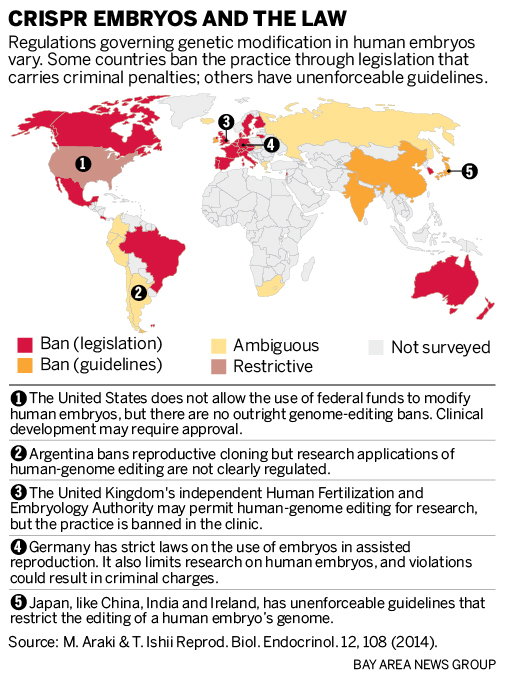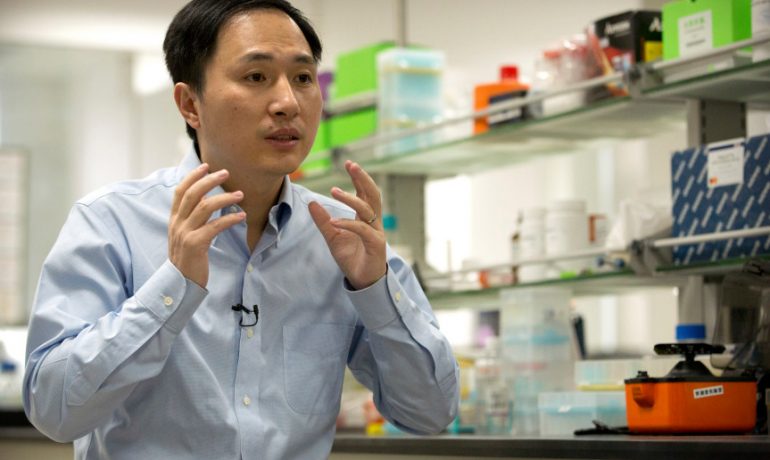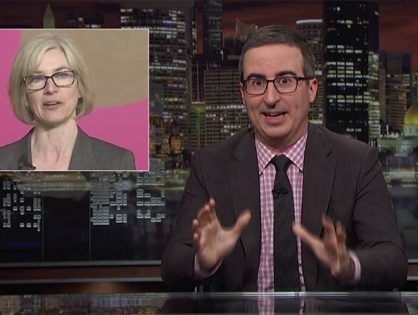The San Jose Mercury News has a good piece that looks at the ethical firestorm unleashed by the Chinese scientist who altered the DNA of twin girls at the one-cell embryo stage. Given the mind-blowing advances in CRISPR technology, can such a thing happen in the United States? The answer in short? Yes, but. From the article:
The U.S. doesn’t explicitly ban gene editing of embryos. But scientists are not allowed to use federal money to do it. And even if the work is privately funded, American scientists can’t get federal approval needed to offer the technology to patients. That’s because there’s a provision in the Consolidated Appropriation Act of 2016, renewed annually, that says that no federal money can be used to review an application in which an embryo was modified.
And what of elsewhere in the world?:
The news also confronts us with this unsettling reality: Nations vary widely in their oversight of this powerful and potentially beneficial technology — and there is no international set of enforceable ethical guidelines or moral norms to manage it. Experts predict CRISPR’s use likely will proceed at wildly different rates among different countries, cultures and regulatory systems.
And from the accompanying graphic below:
The United States does not allow the use of federal funds to modify human embryos, but there are no outright genome-editing bans.
Birthrights Unlimited, which readers will recognize as the company in my high-tech thriller Biohack, is a private company in Dallas that accepts no federal funds and thus is free to offer its gene-editing services to clients.
Given the advances in gene editing and the constantly evolving landscape, here's today's state of play on where gene editing is permitted (click through to see the original graphic on the Mercury News site):




